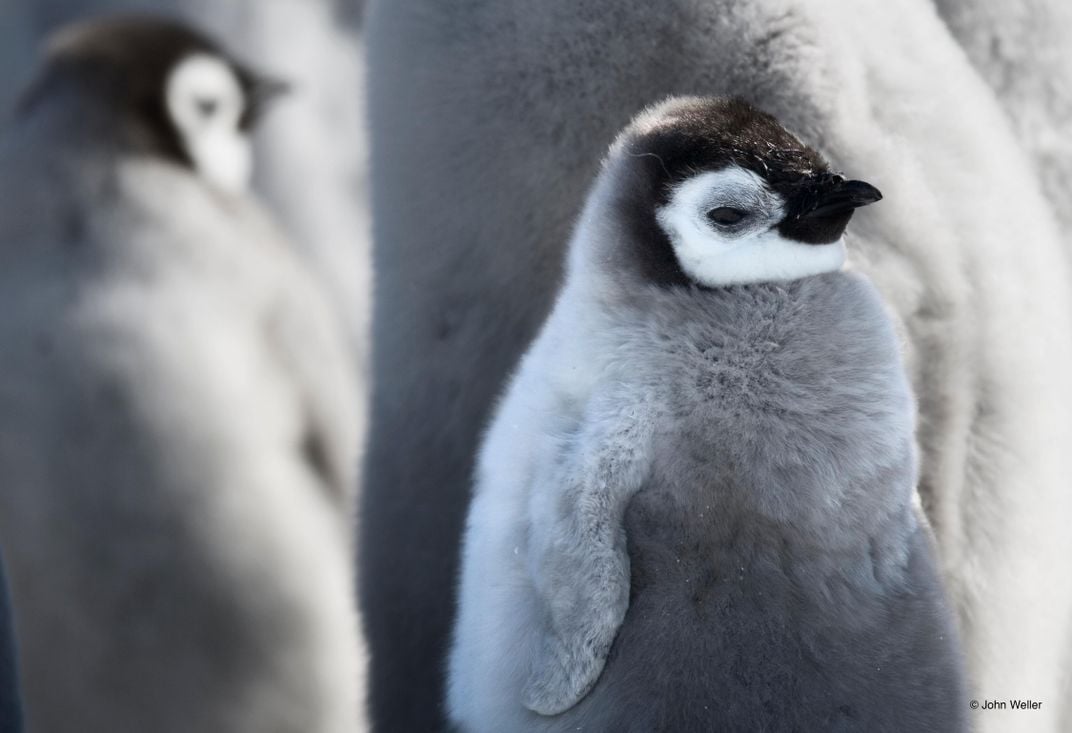World’s Largest Marine Sanctuary Declared Off Coast of Antarctica
The 25 parties to the Commission for the Conservation of Antarctic Marine Living Resources voted to protect 600,000 square miles of the Ross Sea
/https://tf-cmsv2-smithsonianmag-media.s3.amazonaws.com/filer/bc/00/bc00a332-2d8c-49de-8236-1052354e1852/seastars_and_anchor_ice_under_the_sea_ice_ross_sea_antarctica__john_weller.jpg)
Penguins rejoice: yesterday, officials and scientists from 24 nations and the European Union voted unanimously to establish a 600,000-square-mile marine reserve in Antarctica’s Ross Sea at a meeting of the Commission for the Conservation of Antarctic Marine Living Resources in Hobart, Tasmania. When the reserve officially goes into effect on December 1, 2017, it will become the world’s largest marine protected area.
The United States and New Zealand initially proposed the idea to the Commission in 2011, but it took several years to get everyone on board. “This has been an incredibly complex negotiation, which has required a number of Member countries bringing their hopes and concerns to the table at six annual CCAMLR meetings as well as at intersessional workshops,” Andrew Wright, executive secretary of the CCAMLR says in the press release.“A number of details regarding the [marine protected area] are yet to be finalised but the establishment of the protected zone is in no doubt and we are incredibly proud to have reached this point.”
The agreement will protect an area of ocean off the Ross Ice Shelf for a period of 35 years, a restriction added by China and Russia, reports Michelle Innis at The New York Times. The entire zone will be off limits to fishing during that time.

According to Innis, much of the opposition to the reserve in previous years came from CCAMLR member state Russia. The establishment of the reserve requires the consent of all nations involved, and last year, Russia torpedoed a similar proposal. But the Russian government has become more interested in conservation of recent, with Vladimir Putin signing an order declaring 2017 the Year of the Environment. They also expanded their Russian Arctic National Park to include Franz Josef Land, the world’s most northerly chain of islands.
So far, this latest agreement does not reduce the tonnage of fish that can be taken from the Ross Sea. But it does keep fishing fleets further out to sea and away from critical breeding grounds for whales and other marine mammals as well as penguin and fish. The CCAMLR also extended a ban on krill fishing for five years, to protect the tiny crustaceans that make up the base of the Antarctic food system. Krill is mainly used to make fish food, though recently krill oil has become a popular nutritional supplement touted to have similar benefits as fish oil.
The reserve is significant for other reasons, as well, reports Michael Slezak at The Guardian. The scientific community and environmentalists have long been seeking stronger protections for the Southern Ocean since it is the last intact marine ecosystem in the world. They also estimate that it produces about three-quarters of the nutrients in the entire ocean, meaning it’s the cornerstone of marine ecosystems in the Atlantic, Pacific and Indian Oceans.
The passing of this marine reserve is also a political triumph since it is the first designated in international waters. Slezak says this sets an important precedent and may help the world reach a goal from the IUCN, the organization that monitors endangered species, of putting aside 1/3 of the world’s oceans as marine reserves.
So far, 2016 is shaping up to be a strong year for ocean conservation. In September at the Our Oceans Conference in Washington D.C., nations including Korea, the U.K., Canada, Colombia, Malaysia and the U.S. announced new reserves to protect 1.5 million square miles of ocean.
